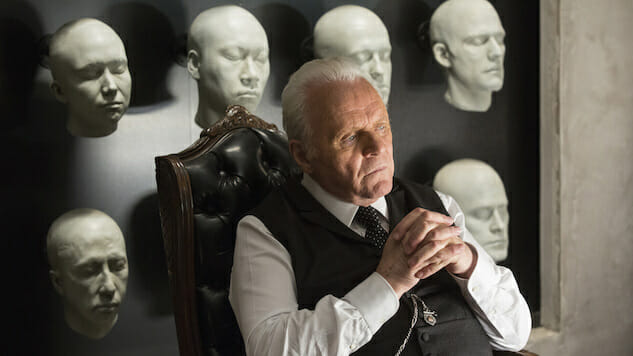Westworld and the Art of World-Building
John P. Johnson/HBO
I find Westworld slightly unnerving in the way I find Black Mirror slightly unnerving. It’s a feeling that’s grown as I’ve made my way through the season and read recaps of each episode. An obvious question lingers, but it’s one worth asking, and it’s this: Why is the gap between the person who created the story and the person experiencing the story more troubling in the context of something like Westworld or Black Mirror than it is, say, when a playwright or author indulges in dramatic irony? What unnerves me here? What leaves me cautious? Is it the gap itself? Or is it something else?
I’d argue that it’s not the fact that the “hosts” serve as a meta-commentary on HBO, remembering the trauma of previous lives as they wake up fresh and new every day, as Jeet Heer of The New Republic posited on Twitter in the early days of the season. And it isn’t necessarily the fact that each episode is a reflection of a certain kind of economic policy bearing fruit, either. Rather, each series —formerly, Black Mirror; presently, Westworld— is unnerving because each conveys a world in which we can’t necessarily see or sense the author’s mind popping up into the middle of a text, that moment when we know we’re there with Toni Morrison, Gabriel García Márquez, or whomever. If there were a Holden Caulfield knocking around the future these shows occupy, one would wonder about his capability of looking into Westworld and feeling like something was looking back, as he more or less put it in The Catcher In The Rye.
-

-

-

-

-

-

-

-

-

-

-

-

-

-

-

-

-

-

-

-

-

-

-

-

-

-

-

-

-

-

-

-

-

-

-

-

-

-

-

-








































